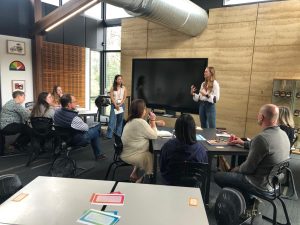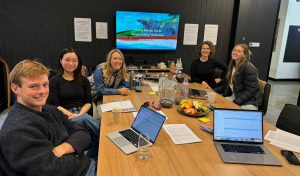This week, we saw ATAR results trickle out across the country. Some young people will be celebrating, others will feel disappointed, some might just feel relief.
We want to acknowledge, and ask you to see in yourselves, that your ATAR isn’t a measure of your schooling experience. If it was it would acknowledge your diverse range of skills; the things you have learned; your strengths and capabilities.
Who are we to provide such advice, you ask?
Well, not only are we young people who have finished school ourselves in recent years, but we have also recently spent time with dozens of young people across Australia through interviews and workshops to hear about their education experiences. We are part of a research team that has launched a report this week, showing us what young people think about their education and where it fails to meet their needs. What makes it even more interesting and impactful is that it has been co-led by young people as both researchers (us!) and contributors.
Unfortunately, this is unique, with young people often an afterthought in conversations about their education. This needs to change. Our report delivers a clear message: it’s time for the education system to move beyond narrow academic results and genuinely recognise the whole learner.

Young researchers Linh and Mietta share findings from The Whole Learner Report with educators at the ReimaginEd Conference in Victoria
The Whole Learner: Young People on the Next Chapter in Learning Beyond Limits highlights that meaningful recognition of young people with a broader range of skills, either formally or informally, increases their self-awareness while also making students feel valued.
But that’s not all. It also shows that young people highly value recognition of their non-academic skills and strengths – those transferable qualities that shape who they are and align with what’s important to future employers.
Participants also told us that recognition can happen formally or informally. Either way, young people thrive when they feel seen and valued as whole individuals, fostering self-awareness and resilience. Recognition beyond grades and awards validates and motivates on a deeper level.
They also told us the importance of connections with educators and mentors beyond the classroom, as it strengthens their sense of self and worth.
There were fascinating insights around the value of embracing diverse learning and career paths to empower students to pursue goals aligned with their passions and talents.

Members of The Whole Learner Research Team
Finally, and perhaps most compelling, our research has shown that broadening recognition for students from disadvantaged backgrounds can break barriers, reduce stigma, and boost resilience and self-esteem.
We hope this report ignites a movement where young people see themselves as vital change agents, stepping into leadership to reimagine and reshape the education system. We also want it to serve as a catalyst for policymakers, educators, and the community to recognise young people as capable leaders in shaping the future of education and embrace co-creation processes.
To graduating students, be proud of the work you have put in and seek opportunities that the ATAR opens up for you. Don’t just focus on what’s next academically – explore what’s next in the world, and let that guide you towards discovering your true capacity for impact together.
Charlie, Mietta and Linh
This report and ‘young person’ cycle of the work was co-led by emerging researchers who have had recent experience in secondary education alongside the expertise of the University of Western Sydney Young & Resilient Research Centre and the Learning Creates Australia team.
The media release is available here. For media enquiries please contact– Maggie Hill (0404 196 452, maggie@hillplus.com.au).


